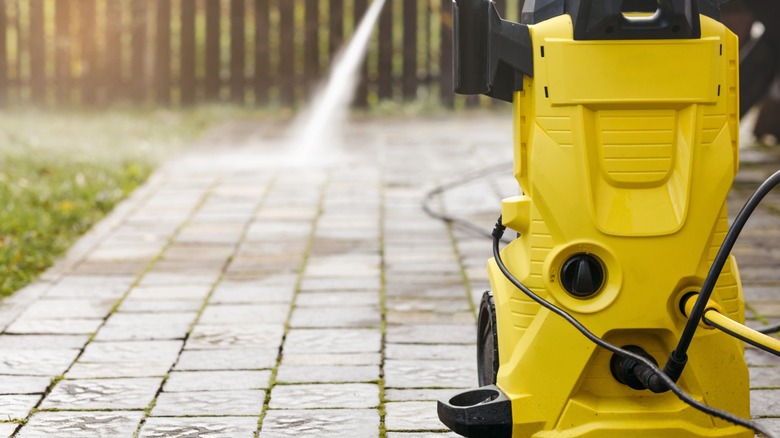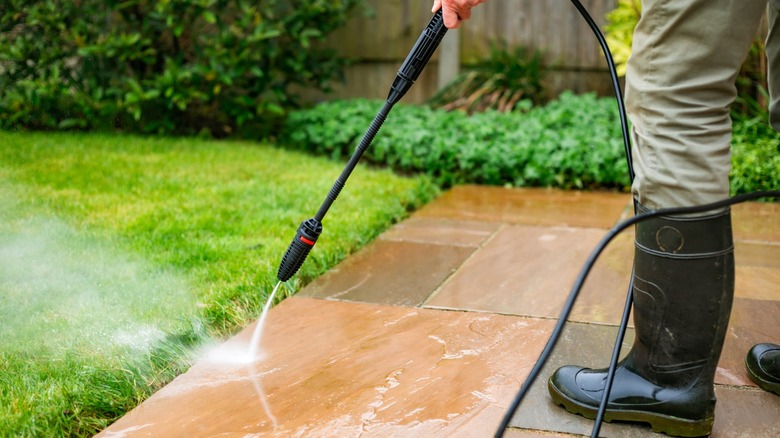GPM And PSI: Why These Ratings Matter When Buying A Pressure Washer
It's tempting to just search "pressure washer" on Amazon and buy the cheapest option with the highest user ratings. Unfortunately, life isn't that simple; you have to get a pressure washer with specs that fit your needs. Ignoring important numbers like PSI and GPM could cause ineffective washing at best or ruin what you're trying to wash in a worst-case scenario.
You should think of water the same way you'd think of electricity. The flow rate, that's how much stuff is being produced, is measured in gallons per minute (GPM) for water and current or amps (A) for electricity. Pressure, on the other hand, is measured in pressure per square inch (PSI) for water and volts for electricity. Now, would you use just any current and voltage for your electrical appliances? No, you would have to follow the manufacturer's instructions because they know just how much it can handle. To a lesser degree, the same applies to pressure washers; some materials and items can handle more pressure and flow than others.
That said, when it comes to washing, specifically, high PSI gives you a stronger force of water, meaning you get a better ability to break up dirt, grime, or paint. PSI is usually the main culprit for damage or ineffective washing, so always find a good PSI before choosing a pressure washer. Higher GPM helps with more efficient rinsing and overall cleaning since the water can effectively carry away more loose debris. Multiplying PSI and GPM gives you a cleaning unit (CU), and you need a good combination for the task at hand.
What PSI and GPM are good for what surfaces?
Most household tasks don't need more than 2.5 to 3.0 GPM, so a flow rate around that would work for most non-commercial uses. While higher might mean faster cleaning or rinsing, it could lead to more waste and would likely not improve your cleaning by much. For things like window glass, you should stick to around 1,500 PSI. You can go higher — up to 2,000 PSI — for tougher glass, like strong window panes. With all the glass and plastic, that's why the 1,300 to 1,900 PSI range is also good for washing cars.
Concrete is one of the few household materials that you could justify washing with a high PSI and high flow rate (at least 2.5 GPM). You could go as high as 3,000+ PSI on a concrete driveway and not worry about doing any serious damage. If it's rust or paint you're trying to remove, you could take things even higher with a powerful pressure washer — up to 4,000 PSI with a lower flow rate — but you must still be careful to make sure you don't cause any material damage to the base structure.
Of course, take this information with a grain of salt; there are near-limitless types of different materials out there, and this general recommendation does not cover all of them. This info should just serve as a rough guide to give you a better idea of where to start or research further if needed.

